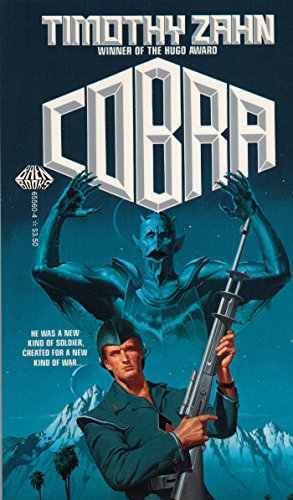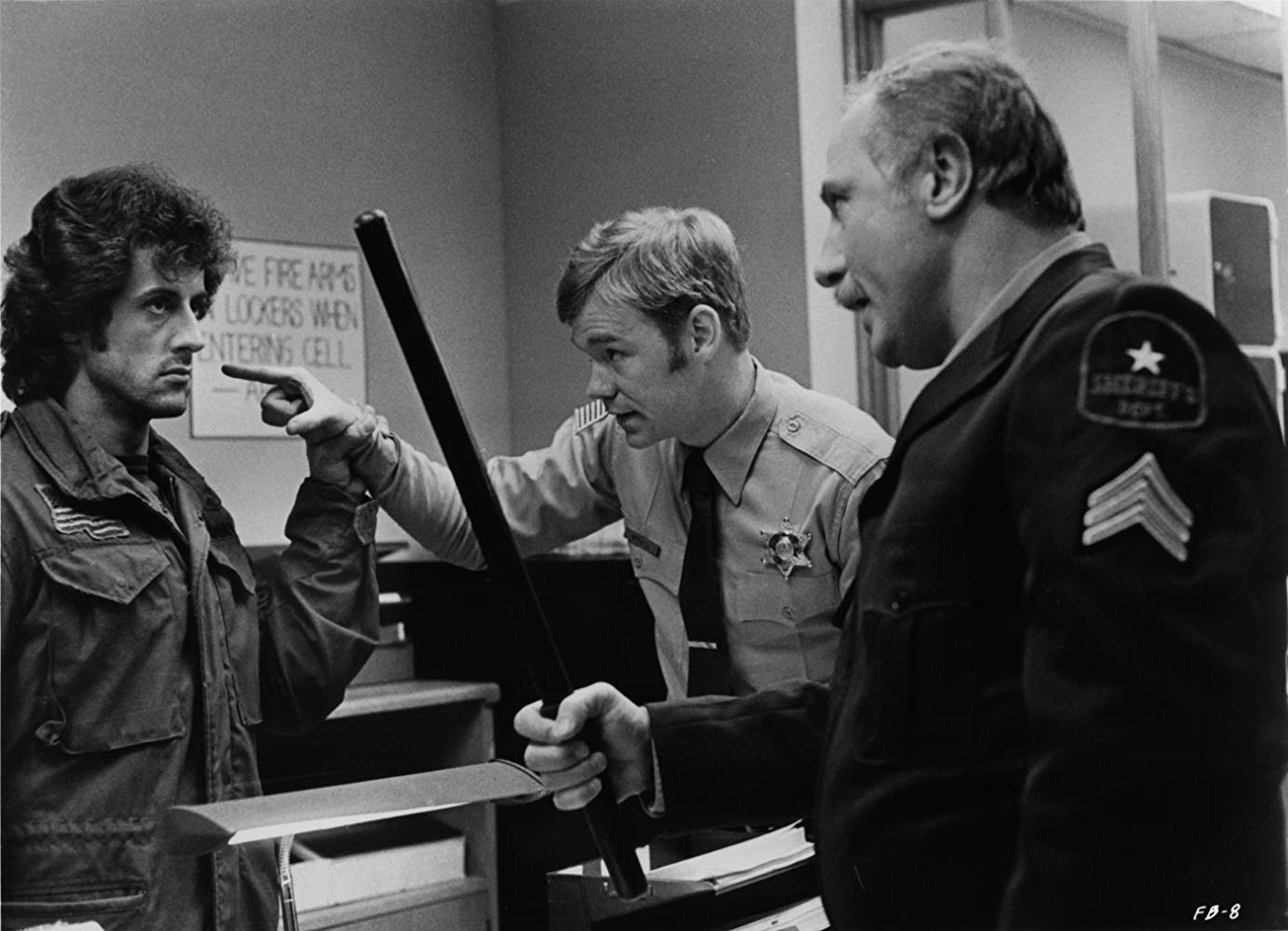Cobra book review

Cobra
by Timothy Zahn
236 pages
Published by Baen (2015)
ASIN B00XLTZTIK
When I read the cover blurb for this book, I expected something like the Blackcollar series: military sci-fi about super soldiers, cyborgs in this case instead of pharmaceutically enhanced ninjas. That impression is completely wrong. While there are some battle scenes in this book, that isn’t really the focus. This isn’t really military sci-fi at all, but rather speculative fiction about politics using super soldiers as a thought experiment.
This is the second book I’ve read recently that looks at the problem of how a society would change if people appeared within it who were faster, stronger, and generally more dangerous than the norm. The first, Heroes Fall, was in the superhero genre. The reaction of that society to superhumans in their midst is mostly adulation, with a few generally ignored naysayers. The corruption of society is subtle and slow, underneath the public fanfare.
For the Dominion of Man, the seventy-world setting of Cobra, their cyborg super soldiers were created [perhaps in a bit of a panic] to help win a war, without much thought for what would come afterward. Men with unusual strength, automated reflexes, and lasers built into their fingertips are not universally loved once demobilized, especially when accidents and misunderstandings that escalate into things far worse start to occur.

Don’t poke the cyborg, even if he is a drifter
I was reminded of David Morell’s First Blood, a novel that really captured the struggles of Vietnam veterans to find a place back home, or the ending of The Hurt Locker, when Jeremy Renner’s Sgt. James stands bewildered by the endless varieties of breakfast cereal in a supermarket. Men who did everything their government and society asked of them come home to find that they no longer have a home to return to.
The bulk of the book is taken up with the search for an acceptable political solution to the problems the Cobras pose to their society. Officially, the Cobras are war heroes. In the public eye, they are mostly objects of fear and loathing. Unofficially, the Central Committee that runs the Dominion considers them a threat; bored and frustrated former soldiers that have more in common with each other than their fellow citizens can become agents of revolution.
While we are treated to brief interludes within the halls of power on the planet Asgard, we mostly see this play out through the eyes of Jonny Moreau, a bright young man who volunteered to go off to war, and found that he was changed forever by the experience. We follow Moreau from young adulthood, when he volunteers for service, into middle age, when he brokers a deal to preserve hard won freedoms and privileges for his fellow Cobras at immense personal cost. I gather there are a number of sequels that follow from this book, as Zahn explores the further implications of Jonny Moreau’s actions at the end of this book.
Since this is hard sci-fi, many of the problems the Cobras face, both in battle and life, stem from the physical consequences of their modifications. During the bootcamp section of the book, the Cobra trainees spend time learning how to pick up unusually heavy things without tearing their ligaments or giving themselves subdermal hematomas. Their bones have been strengthened, and their strength and speed supplemented by servo motors, but the rest of their bodies remain much as they always were.
First and foremost, they are men, and they want the same things as anyone else: a job, a family, a home. Unfortunately, most other people don’t want them around. In a memorable incident in his home town after Jonny comes marching home, a couple of young punks hassle him in a local entertainment center, and then swerve their car towards him when they seem him walking on the street later. Jonny’s programmed combat reflexes take over [literally, COBRA means computerized body reflex armament], he shoots out the tires of the kids’ car and they both die in the resulting crash.
The reason this all happens is that the computer implanted in the brain cannot be removed with causing brain damage, and the finger lasers cannot be removed without amputation, and that was a price the Central Committee was unwilling to pay [or unwilling to be seen to be willing to pay]. Although, I did wonder why they didn’t do something about the power source, which was implanted in the chest, and thus much easier to get to. Much of the other equipment Jonny carried into war was successfully removed, but none of it other than the strengthened bones would work without power. I do remember reading about how much heavier their bodies got, so maybe it was seen as too much of a burden to leave them with limbs too heavy to lift. Perhaps this could have been explored a bit more.
The Central Committee itself is interesting, insofar as it really is an Inner Party. The Central Committee almost functions as a character, one analogous to Lathe in the Blackcollar novels or Thrawn in Heir to the Empire, powerful and far-seeing, capable of predicting its opponents and laying traps. It is also quite good at governing, since the Dominion of Man seems quite peaceful and prosperous. Except, in this case, everything that happens is because the Central Committee made a mistake in even allowing the Cobras to be created. Over the many years depicted in the novel, we see the Central Committee continue to dominate, but also to make critical mistakes at times. I enjoyed how Zahn took a central idea in his style and inverted it, making the the clever and powerful Central Committee the antagonist.
I also liked the broad sweep of the novel, covering several decades in the life of Jonny Moreau. Since the kind of things Zahn wants to explore in this novel take a long time to work themselves out, nothing shorter than a generation would have been adequate. Looking through the blurbs for the many sequels, we will continue to follow the Moreau family as the implications of Jonny’s solution work themselves out over the generations to follow. Overall, this was an interesting novel, and I’m curious to see where Zahn decided to take the society he created in the conclusion of this book.
Other books by Timothy Zahn
Night Train to Rigel: Quadrail book 1 review
The Third Lynx: Quadrail book 2 review
Odd Girl Out: Quadrail book 3 review
The Domino Pattern: Quadrail book 4 review
Judgement at Proteus: Quadrail book 5 review
Heir to the Empire
Dark Force Rising
The Last Command
The Blackcollar: Blackcollar series book 1 review
The Backlash Mission: Blackcollar series book 2 review



Comments ()